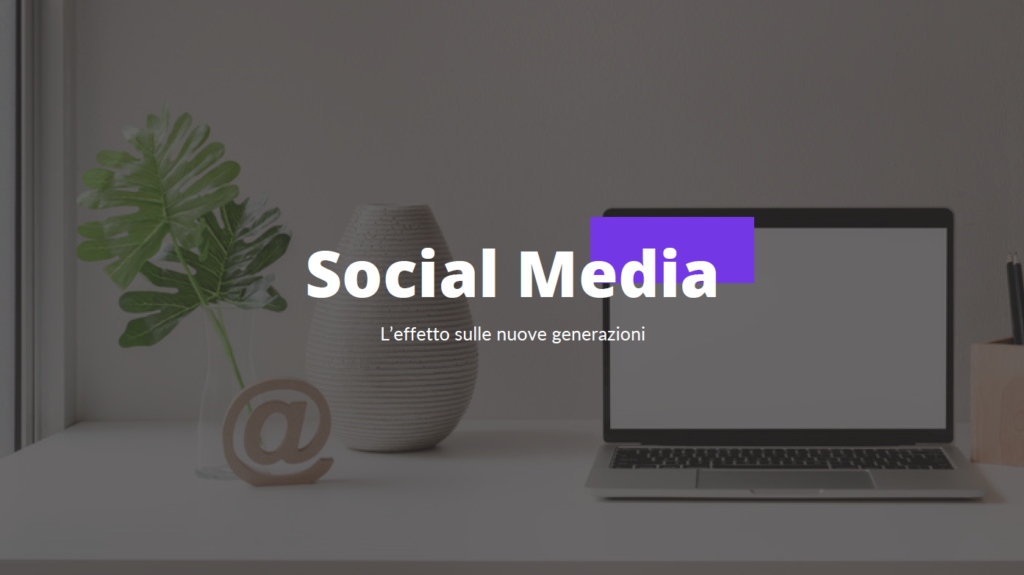What is social media?
Social media is a collective term for websites and applications that focus on communicating content and are based on the concepts of community, interaction, sharing and collaboration. People use social media to stay connected and interact with friends, family and various communities of people
Why are they used so much?
Information travels much faster than old mass media, can be consulted over time and allows for direct discussion with readers. We can say that the winning characteristics of social media, compared to traditional media, are:
– possibility to consult them at any time, both from PC and smartphone
– customizable content based on your interests
– non-existent cost to access it
– extreme measurability of activities
That’s why they are becoming more and more popular. Furthermore, the ease of registration allows you to build your own network of friends. Choosing the right social network is slightly more complex.
How to choose the right social network?
The social network is a non-physical place where people meet. As in every place there is an unwritten etiquette of behavior that characterizes it. For example, on Linkedin people mainly talk about work. In fact, the goal of social media is to bring together workers to create new possibilities for collaborations. On Facebook or Instagram people share photos and videos that capture moments of their days with their friends: Instagram is more specific for those who want to show beautiful photos, while Facebook is for people who want to meet old friends or meet passionate people with common interests.
The effects of social media
Social media, in part, is useful because it allows us to relate or have a relationship with those who we wouldn’t actually have the opportunity to have. But precisely because we don’t know who we follow or who we talk to, this can turn into a negative thing: not everything we see or what they want us to see is reality, and what better example than everything that happens every day because of social media. Our society today is characterized by an excessive use of social media, which involves entire generations. In reality, at the beginning, the continuous use of the cell phone led to the onset of vision or postural problems. But now, unfortunately, we are witnessing an increase in problems that also involve the psychological sphere, especially among adolescents. Often we are addicted to the likes and comments that we read under each post, leading us to believe that real life is the one that is presented to us through models of perfection and beauty. In reality, nowadays the concept of uniqueness, of independence is being lost, it seems that we must all be the same, conformed to the fashions of the moment, the reality that is presented to us is the one that they want us to see.
Because of all this, cases of suicide have even occurred, as young people do not feel accepted by their peers or do not feel understood by adults; some teenagers suffer from eating disorders because they believe that beauty depends on their weight or physical appearance. Some kids even don’t leave home because they are too dependent on social media and the virtual world and are no longer able to establish authentic, equal relationships in the presence of friends and classmates. We have arrived at unspeakable paradoxes, also due to stupid “challenges” that lead to inexplicable dramas.
We also cannot forget the problem of addiction that affects people who use social media. All the big platforms like Instagram or TikTok are accused of using an algorithm to understand the contents that the user likes, continuously reproducing them so as to block them in an ‘infinite scroll’.
Ultimately, social media has often been accused of exposing adolescents to harmful and toxic material, exposing them to content that can affect their psychological well-being.
But the latest serious accusation made was that of using behavioral and neurobiological techniques specific to gambling to make children addicted to their products.
The various scientific research in this regard have generally highlighted a negative impact of social media, but also of the internet and smartphones in general on the mental health of young people and their psychological well-being.
Of course it is easy to talk about the discomfort caused by social networks, but let’s also try to see the positive part that can help young people:
Expand your connection and understanding of the world
Young people can learn and appreciate different perspectives and worldviews to better understand the world around them and develop their knowledge on a wide range of topics. With so many ideas shared across multiple platforms, they can discover areas of interest and use the platforms in an educational capacity
Develop communication and technical skills
As social media is now part of everyday life, it is important that young people learn to communicate online to prepare them for future opportunities in the workplace and support them in interacting with friends and family. The use of social media platforms can help them develop digital literacy in various areas.
Removing boundaries to develop connections
Social media removes the boundaries of meeting and keeping people and forming bonds across borders. For some kids who may have a disability or feel unable to connect with others within their community, it can be a great way to connect with other people who share their ideas and interests.
Strengthen relationships
Having access to family members who may live miles away from friends who have moved from a local area can help maintain relationships and allow them to stay connected and share their lives with ease.
A place to look for support
It can open up opportunities to offer support to friends and family who may be experiencing particular problems. On the flip side for some young people it can be a place where they can look for support if they are going through something they can’t talk about with those close to them.
Campaign for social good
Social media can help young people raise awareness of a particular cause they are interested in to have a real-world impact on change where they want to see it.
Develop a positive digital footprint
Young people can also use their accounts as bespoke CVs to share their achievements, showcase their talents and build a positive online portfolio that can benefit them in later life.
(Ist. Buzzi, Prato – classe VB)




